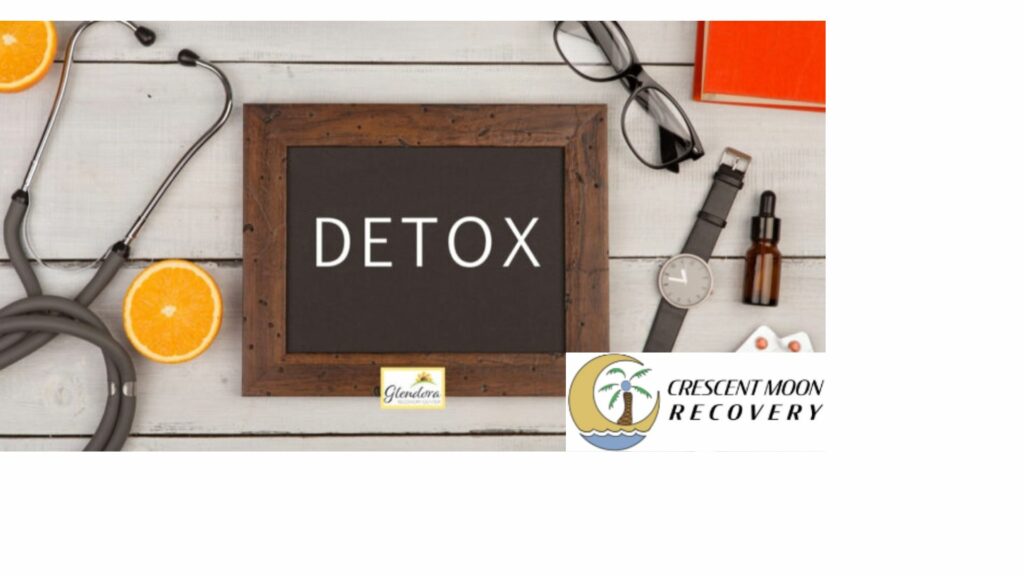
A comprehensive alcohol and drug rehabilitation program provides patients with comprehensive substance abuse treatment. It includes individual therapy, group therapy, family therapy and support groups as well as individualized treatment plans. These interventions can help patients develop coping skills, communicate better with their families, learn sober social skills and avoid triggers.
Substance abuse disorders can be complicated. There are no two people exactly alike, which is why addiction rehabilitation (rehab programs) provides a comprehensive, individualized, holistic treatment approach.
One person might need detoxification that is medically managed and then residential treatment. A different person might not require detox, and may be eligible for intensive outpatient care.
Multidisciplinary approaches can help ensure that programs include a wide range of addiction treatment options to promote recovery. Most programs address the individual’s psychological and physical needs. They also include psychoeducation, relapse prevention skill training, support groups, family therapy, education, and individual counseling.
Research-based best practices tends to combine the theoretical and biopsychosocial perspectives on addictive disorders. This includes providing support counseling, encouraging client readiness to change and teaching coping-skill skills.
According to the Mayo Clinic:
These signs may not be present in everyone who is suffering from alcoholism, but you might see them in someone you know. Drug addiction signs may look similar to alcohol abuse. Someone addicted to an illicit or prescribed substance can’t control their use, just like someone who struggles with alcoholism.
When choosing a rehab program for drug or alcohol addiction, the first thing you should do is decide between an inpatient and outpatient clinic. You should consult with professionals to learn as much as you can about the best type of program for your needs.
Outpatient rehab might be an option for those who don’t want time taken away from their work, school, and home obligations.
Outpatient treatment involves patients traveling to the facility for predetermined treatment sessions and then returning home at night. Because the patient does not have to pay for lodging and board, this option can often be more affordable than inpatient treatment. There are many types of outpatient programs available, each with different intensity levels. Partial hospitalization (PHP), also known as day treatment, is the most intensive. This involves both medical and non-medical staff members being treated for several hours each day, 5-7 days per week.
After completing an inpatient program, many people transition to a PHP. This is called “step-down” therapy. A non-medical staff member will provide treatment in an intensive outpatient program (IOP). This lasts approximately 6-9 hours per week. A standard outpatient meeting takes place 1-2 times per semaine, and lasts 1-2 hours. These meetings are often held in a clinic or doctor’s office setting.
There are many types of treatment available for drug and alcohol addiction, just as there is outpatient. This depends on your priorities and needs. Inpatient holistic rehabs can combine traditional therapies, such cognitive-behavioral treatment (CBT), and alternative and complementary approaches such as yoga, meditation, acupuncture and creative arts therapy.
Residential drug rehabilitation is an option for a man. The program you choose should depend on your addiction severity and your willingness to adhere to the program. Outpatient treatment might be right for you if you have the support of your family members and friends and believe you can carry what you learned during your daily recovery sessions with you into your personal life.
You might find it more beneficial to live in an inpatient or residential facility if you lack a supportive and safe home environment or your addiction is severe.
The National Institute on Drug Abuse (NIDA) reports that 18% of people who entered drug rehabilitation programs in 2009 were suffering from alcoholism or addiction to another substance (polysubstance dependence). Many of these patients sought treatment in a residential drug rehabilitation program.
Residential addiction treatment programs ensure that you are able to access the support and help you need whenever you need it. You will be able to make changes in your life and develop coping skills. Although the skills you learned in outpatient treatment will be useful once you return home, the outpatient clinic can only provide support and close supervision during your stay.
To protect your privacy, rehab programs are required by law. Client safety and confidentiality are a part of our professional standard. Although you may share a room or attend sessions together, your information will remain private and secure until you are done with your treatment.
You will be treated for your addiction when you enroll in a treatment program. The treatment plan will address all aspects of addiction, including the emotional, psycho-social and familial. You will receive comprehensive psychoeducation on the complex subject of addiction while in treatment. Not only will you gain an understanding of substance abuse disorders, but also the steps to recovery and how to avoid relapse.
In Addiction Rehabilitations, Alcohol is the Most Commonly Treated Substance.
Alcohol, is one of the most predominant substances of abuse in treatment attendees, as a survey conducted by Recovery Brands in 2017 shows. Nearly 53% of those surveyed said alcohol was the main substance for which they seek treatment. No matter how many drugs of abuse are out there, alcohol seems to do the most damage.
Good outcomes depend on the length of treatment. Some people require several months to get sobriety under control. NIDA states that a 90-day stay in an addiction rehabilitation program may not be as effective. Therefore, it is recommended to continue treatment for a longer period of time to ensure positive outcomes.
However, any length of treatment can be beneficial. A 30-day program for drug rehabilitation will allow you to get clean and stay clean if you or someone you care about is having trouble quitting smoking or abstaining.
Collaboration with professionals can help to determine the best program model and length of stay. Although substance abuse programs can be approached directly to discuss their treatment options, it is a good idea to consult a professional to help you follow their recovery program recommendations.
You should read more about how to prepare for a program in drug rehabilitation. A staff member will show you your room and give you a tour when you arrive. The staff will ask you questions about your substance abuse, mental and physical health, as well as any insurance coverage.
The staff will review your proposed treatment plan. This will include your treatment schedule as well as an aftercare plan that will help you continue making progress and maintaining sobriety.
A supervised detox stage is required if you have a severe or potentially dangerous withdrawal from alcohol or drugs. This allows your body to eliminate the substance from your system and often includes medication to help with withdrawal symptoms. You will spend most of your rehab time attending therapy sessions and meetings, where you will focus on your recovery from addiction.
Former rehab patients often find it beneficial to live in a halfway house, group home or sober-living house as part their addiction rehabilitation aftercare. A common way to continue with a long-term drug rehabilitation program is through sober-living or halfway houses. These houses let you live with sober friends. These friends often have similar issues and can support each other in staying sober.
Sober-living and halfway houses can often help you save money on food or housing. This can also help with your financial stress outside of treatment.
Patients and therapists collaborate to create an aftercare plan that will ensure sobriety. The aftercare plan could include extended treatment, residence at a sober-living home or another recovery environment, continuing therapy sessions with a substance abuse counselor, or therapist, as well as participation in regular self-help meetings.
You are probably looking for information on addiction treatment and other options if you feel you need it. Anxiety can be triggered by the idea of having to change your life. Talking with a specialist in addiction treatment can help you to overcome your anxiety. You will feel loved and supported by the staff. You will feel relief and be ready for the road to recovery.
When you stop using a particular type of substance, withdrawal symptoms can occur. These are some of the common symptoms of alcohol withdrawal:
While some forms of drug withdrawal, such as benzodiazepines or other sedatives may look similar to the acute alcohol withdrawal syndrome (AAS), other symptoms will vary depending upon the drug. There are many withdrawal symptoms that can be experienced with a variety drugs. These symptoms may include:
Within a matter of hours, withdrawal symptoms may appear. You have many factors that can influence withdrawal symptoms, including your age, health history, medical history, and what type of substance you used. Once the intake has been completed, your rehab program will provide information about what to expect.
A drug rehabilitation program provides support, trained and caring staff as well as a safe and comfortable environment to deal with withdrawal symptoms. A doctor can prescribe drugs to help manage your symptoms and reduce cravings. They may also be able protect you from dangerous events like seizures.

There are many resources available to help you get clean and sober. You can choose to enter an addiction rehabilitation program, regardless of whether you are new to using drugs or have been struggling for years.
© 2024 Crescent Moon Recovery: Alcohol & Drug Rehab Centers Orange County, LLC. All Rights Reserved.